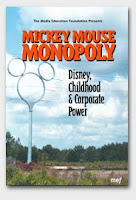Overall, the quality of your research and writing was excellent and I've learned valuable information that I plan to share with future students. Truth be told, some of the things I learned disturbed me. Nonetheless, I'm grateful to have learned them. I could share some fascinating facts from each and every paper, but I have to finish grading so I'll limit myself to a couple of examples.
- Jeremy E. Uecker studied married couples versus single individuals and found that being married or engaged "curbs drunkenness, and married adults, especially those who marry at ages 22 to 26, are more satisfied with their lives" (emphasis added). Thanks to Katherine Harper, who cited this information in her paper about A Wedding Story and similar reality TV shows.
- When methamphetamine was first introduced it was not an illicit drug. Japan used meth commercially and Britain and Germany used it to increase the effectiveness of their soldiers. Thanks to John Huffman who cited this information in his paper about Breaking Bad.


